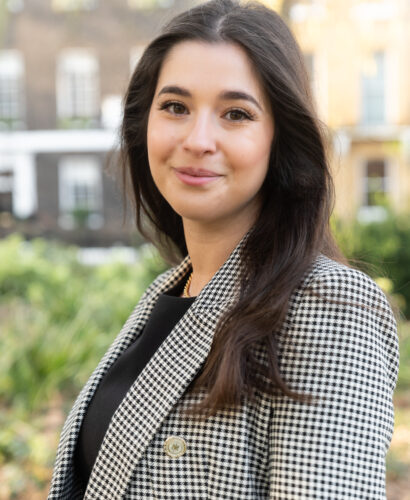
Legal Services for Sports Professionals
The job of a footballer, and any elite sportsperson, is a unique one. The influx of money one receives at a young age is unheard of in almost all other industries. However, unlike these other industries, a sporting career is often short and can leave you financially vulnerable, with only a small proportion of professionals receiving regular income from a punditry or coaching career upon retirement. It is estimated that 40% of professional footballers go bankrupt within five years of retirement and many more struggle financially later in life. This financial vulnerability can also be present during their playing career.
A breakdown in a relationship can leave a professional sportsperson or footballer, particularly at the height of their career, exposed to financial claims from the other party which can often be unaffordable in the long term.
At Edwards Family Law, we have extensive experience in dealing with high-net-worth cases and helping professional sportspeople, footballers and their spouses and partners in navigating their separation, whether they are married or not, taking into account the issues that are so unique to their lives.
FAQs
What is a Cohabitation Agreement?
If a sportsperson is considering buying a property whilst in an unmarried relationship, or their partner moves in with them into a property that is owned in their sole name, it is essential that they consider obtaining a cohabitation agreement. A cohabitation agreement will set out how the property is held and under what terms. It can also regulate the day to day finances, such as the expectation of payment of household expenses, financial arrangements more generally in the event of a relationship breakdown, and the distribution of personal belongings. Upon the breakdown of a relationship, it can provide certainty to both parties and can avoid the need for long drawn-out litigation. Whilst not being particularly romantic, it is something that can save on emotional and financial stress further down the line.
Pre-Nuptial Agreements for Sports Peop
Similar to a cohabitation agreement, a pre-nuptial agreement can provide certainty for both parties and protect against excessive financial claims in the event that they decide to marry. For example, a footballer earning tens of thousands of pounds a week is likely to want to secure his position against the possibility of a very high maintenance claim which he might otherwise face in the future, particularly due to their relatively short career. The uncertain and temperamental career of a sportsperson, with many retiring early due to injury, for example, means multiple scenarios will have to be drafted within the agreement. At Edwards Family Law, we have extensive experience of drafting such provisions and can give you clear, concise advice as to what should be included in a pre-nuptial agreement.
If you have already obtained a Pre-Nuptial Agreement in another jurisdiction and have recently transferred from an overseas club, it is strongly advised that you seek advice as to whether the agreement is still valid in the courts of England and Wales. It may be that a Post-Nuptial Agreement is required.
Divorce for a Sports People
In the event a sportsperson or footballer does not have a valid Pre-Nuptial Agreement, then they may be faced with multiple financial claims that are simply unaffordable from the liquid capital available. Edwards Family Law is best placed to advise in such situations as we are able to draw from over 25 years’ of experience in complex divorce cases. Former Arsenal footballer Ray Parlour was involved in a high-profile divorce in 2004. Mrs Parlour was awarded approximately 1/3 of Mr Parlour’s net income for a period of 4 years. This was one of the first of it’s kind in that it recognised that a footballer’s earnings are limited in terms of length of time and therefore the wife required a significant amount of that income whilst it was still being earnt, with it then tapering off.
A frequent solution for divorcing sportspeople is what is known as ‘stock piling’. This occurs when the party divorcing the sportsperson obtains a share of the available capital in order to meet their housing needs and the mortgage will be guaranteed by the footballer.
There will then likely be a generous maintenance sum that will more than meet the needs of the other party’s day to day living expenses which is designed to enable them to pay off the mortgage during the player’s short career, and is intended to allow them to also be saving a sum of money to look to after the player’s retirement when their income is envisaged to drop.
What is a Schedule 1 Application?
When parties are not married, but have children together, a claim can be made under Schedule 1 of the Children Act 1989 by a child’s primary caregiver for financial provision beyond statutory child maintenance.
This claim is for the benefit of the child and occurs in circumstances when one party earns significantly more than the other. This is therefore extremely common in the sports industry due to the high disparity in incomes between the parties. The goal (pardon the pun) of this is to ensure that a child’s standard of living is similar, whichever parent they are spending time with. Therefore, the claim can include a top up maintenance for high earners, school fees orders, provision for housing and other relevant needs until the child reaches the age of 18 (or completes their education, up to and including tertiary education in some cases). At the expiry of the term, often the property provided to the primary caregiver parent will revert to the paying party. The provision of a Schedule 1 application can often be a shock to high income earners, but Edwards Family Law have dealt with a wide variety of cases both for the paying and receiving party, and can advise you to ensure that a sensible solution is reached for both parents, and that it is cost effective and is primarily focused on the needs of the child or children.
What is Alternative Dispute Resolution?
As a high-profile sportsperson, we recognise that your privacy is extremely important to you. It is therefore worth exploring Alternative Dispute Resolution (ADR) processes which avoid the need for you to engage with the somewhat more public court route. These processes include mediation, early neutral evaluations, and arbitration.
Within mediation, both parties meet with an independent third party mediator to try and work out a solution to the various issues at hand. This can be for both Child Arrangements and Financial Matters. The mediator does not take sides and will aim to reach a solution that you are both comfortable with. If you reach an agreement, the mediator will record what has been agreed in a memorandum of understanding and this can then be used by us at Edwards Family Law to draw up a legally binding agreement.
In an early neutral evaluation, an evaluator (often an experienced barrister) occupies a not dissimilar space to a mediator. They provide a service to the parties only because they are acceptable to both parties and have been invited to do so on a jointly instructed basis. However, the evaluator differs from a mediator in that they have been invited to give an evaluation of each party’s prospects and have been asked to set out the possible outcome at a final hearing. This can be very beneficial in fine-tuning issues between parties and encouraging a private settlement.
Arbitration involves a trained third-party hearing both parties’ arguments on a particular matter, such as finances or children. and the arbitrator will then issue a decision (an ‘arbitration award’) that is legally binding on both of you. We will be able to represent you during the case.
The benefits of these methods of ADR are that it is far quicker than resolving a case via the court route, and most importantly, your case will be treated with the upmost confidentiality avoiding the risk of external interest from the press.

Free Consultation
We offer a free 45-minute consultation to all qualifying individuals, who have complex cases and want to be represented by our leading family and divorce lawyers. After 45 minutes, please note that our time is charged at our hourly rates.
During a free consultation with our experienced divorce solicitors and family solicitors, you can expect a comprehensive discussion about divorce in the UK (England and Wales). We’ll walk you through the process of how to get a divorce, covering important topics such as the divorce application, laws on divorce and your financial rights and obligations following a divorce.
Our lawyers will provide insight into divorce law, including no-fault divorce, and help you understand the divorce process, including divorce filing and court proceedings. We’ll also discuss the cost of divorce, giving you a clear picture of what to expect financially. Our team of solicitors also can provide comprehensive legal guidance in issues such as child arrangements (also known as “child custody”), spousal support, and property division.
We’re here to assist you in every aspect of getting a divorce or family issue, making the process as smooth and stress-free as possible. Whether you’re seeking advice on family arrangements or need guidance on a divorce consent order our experts in family law are here to help.
We endeavour to respond to all new enquiries within a few hours but sometimes with other commitments such as court hearings, that might not be possible. At most, we will get back to you within 24 hours. If you require urgent or immediate assistance, please contact the team by email contact@edwardsfamilylaw.co.uk, flagging the urgency and we will do whatever we can to assist, if proportionate and possible on the facts of your individual case.









